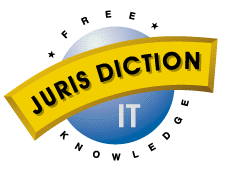 Rights in Data
Rights in Data
copyright 1997 Editor: Donald M. Cameron , Aird & Berlis
Contributors: Donald M. Cameron , Tom S. Onyshko & W. David Castell
Contents
- Introduction
- Is data property? sometimes yes
- Is data property? sometimes no
- European Database Directive
- U.S. Initiatives
- W.I.P.O. Initiatives
- Endnotes
Introduction
Is data property or not?
Physicists talk of the duality of light. Sometimes light acts like a particle. Sometimes light acts like a wave. Physicists aren't sure if light is a particle or a wave but manage to go about their daily business using both models.
The same duality is found for data in the legal universe: Is it property or not? The debate is not new. Past trends lead to interesting extrapolations.
Is data is property? sometimes yes
In some contexts, data has some of the characteristics of "property".
Licence agreements commonly refer to data as "confidential information" or "trade secrets", "owned" by the Licensor. The contract claims ownership in the trade secret or confidential information and the parties agree to maintain it in secrecy.
Data can be exigible just like other forms of property. Computer software which is a trade secret is exigible to a writ of seizure and sale.
To be treated as proprietary data, the data must have been created by the owner, been created for the owner, or been purchased from its creator.
The data must be "private" and not "public" information. Public information includes information which the public either knows or has available to it in books, articles or from other sources.
The whole body of the information need not be completely novel. A compilation of publicly-available data unique to one person can nevertheless be confidential information or a trade secret (often termed "know-how") which a Court will protect.
The system design and specifications created by a programmer can be a trade-secret or confidential information where the design and specification is not general but is specific in nature, if it was treated as confidential and was subject to a danger of being copied as evidence by the restrictive licensing agreement which customers were required to sign.
The owner of the data must use physical and legal protection to limit access to the data to persons under an obligation to maintain its confidentiality. In other words, the information must be treated by the owner as being confidential. Passwords, security devices and physical isolation of data are indications that the owner of the data considers it to be confidential.
Sometimes your data is inaccessible to others because you have put it into data files that are part of someone else's software: See GEAC v. C.E.S.
Is data property? sometimes no
In R. v. Stewart , the Supreme Court of Canada held that confidential information is not property which may be the subject matter of theft under s. 322 of the Canadian Criminal Code.
European Database Directive
See an analysis of the European Database Directive by Donald M. Cameron , Smith Lyons
U.S. Initiatives
In the U.S., Carlos Moorehead, Chair of the House Judiciary Subcommittee on Courts and Intellectual Property, introduced Bill H.R. 3531, the Database Investment and Antipiracy Act of 1996 on May 23, 1996. This Bill incorporates many of the features of the European Database Directive.
For a summary and analysis prepared by Peter Jaszi, Professor of Law at Washington College of Law, American University, and posted on the Home Page of the Association of Research Libraries, see http://arl.cni.org/info/frn/copy/peter.html
W.I.P.O Initiatives
A history of the W.I.P.O. initiative on sui generis protection of databases is given in a Memorandum prepared by the Chairman of the Committee of Experts at which can be found at http://www.wipo.org/eng/diplconf/6dc_mem.htm
At its diplomatic conference in December, 1996, the W.I.P.O. had intended to address the Basic Proposal for the Substantive Provisions of the Treaty on Intellectual Property in Respect of Databases to be considered by the Diplomatic Conference which can be found at http://www.wipo.org/eng/diplconf/6dc_sta.htm
The U.S. Information Industry Association ("IIA") has been a prime supporter of the W.I.P.O. proposed database treaty and has expressed the reasons for its support in a paper at http://www.infoindustry.org/ppgrc/prc/prc/htm
Conclusions
Data is the fuel of the information highway. The ability to control the reproduction and re-use of data will determine who can use the data and for what purpose.
Recent trends in Europe show that the legal model for data is evolving towards making data look more like "property" than not.
The old legal models for data do not fit its position nor importance in the economy. New models must evolve to respond to commercial and social needs. New categories of intellectual property will be created to protect data as it evolves into a unique form of "virtual" property.
Return to:
Cameron's IT Law : Home Page ; Index
Cameron's Canadian Patent & Trade Secrets Law : Home Page ; Index